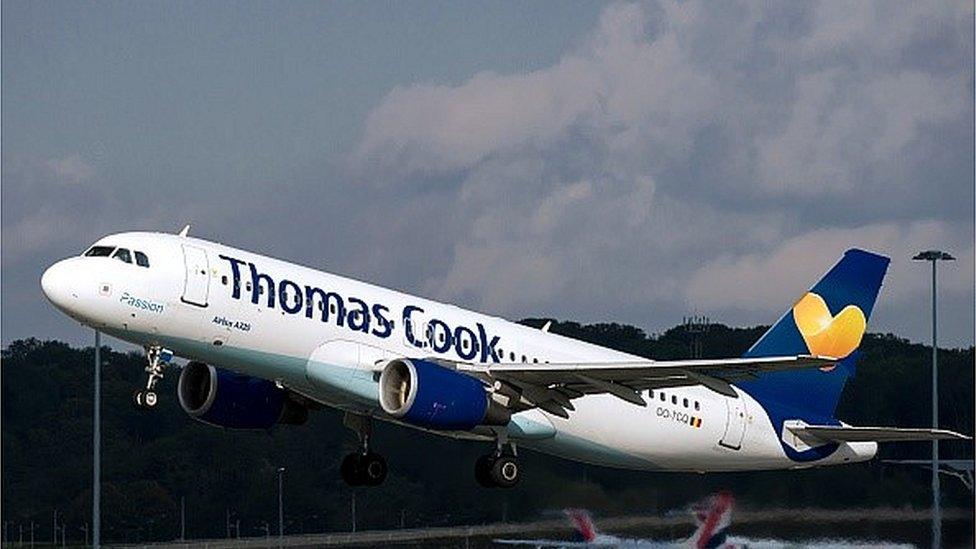Thomas Cook failed to put a grieving family first, finds report
- Published
- comments

In an era when there is considerable suspicion about the motivation of businesses, the ability of a company to react to a crisis in a way that reveals it to be run by human beings rather than faceless chief executives is of paramount importance.
For Volkswagen, the reaction to the revelations that it deliberately tried to game tests supposed to reduce pollution will be as vital in determining the long term damage to the company as the fact of the original offence.
Today's review of how Thomas Cook dealt with the deaths of Bobbi and Christi Shepherd in 2006 shows how the tragedy was then compounded by the company's reaction - a company, it should be noted, which says it tries to "consistently meet and exceed the expectations of its customers".
Take one small example - Thomas Cook's response to a request from the family for legal support during the inquest.
Cost-cutting
In 2014, the company turned down the request, only reversing their position after Peter Fankhauser, Thomas Cook's chief executive, met Sharon Wood and Neil Shepherd, Bobbi and Christi's parents, this year.
"The fact that this tragic situation spanned almost 9 years is testimony to how much the legal rather than human considerations dominated the landscape," Justin King writes in his report.
Earlier attempts by the family to meet previous chief executives were rebuffed or ignored, Mr King reveals.
He makes it clear that at the time of the tragedy the company was focused on "financial, contracting, the airlines and destination" and has only recently been "moving to create a real customer focus".
The report says that the "destination management" process - which encompasses the famous "holiday rep" that is often the first point of call for holidaymakers - saw its role as the "maximisation of revenue for the minimum of cost".
That can lead to tensions and a "misalignment of goals", with cost cutting leading to less time spent with holidaymakers and failing online systems.
In one instance, Mr King reveals, IT systems are so poor, staff in holiday destinations cannot access the Thomas Cook website.
'Adequate'
In such an environment health and safety - often the general butt of jokes about officialdom gone mad - can appear a Cinderella service, under-resourced and under-powered.
Indeed Mr King says that Thomas Cook's Health and Safety Management System, despite being an "excellent framework", suffered from "a number of significant shortcomings in [its] implementation and operation".
How many businesses could confidently say that was not the same in their company?
Even now, Mr King believes that, the new contract Thomas Cook has signed for the provision of health and safety auditing within the company is "at the lower end of the scale, reflecting budgetary constraints".
"Adequate" is the best Mr King can say of the present approach, and information on customer complaints - often an early warning of problems - is "not collected with sufficient robustness", he says.
Different parts of the business operate in silos, and the sharing of information is not what it should be.
Every company chief executive should read Mr King's report. And reflect on now many of the problems he has identified are also true of the businesses they run.